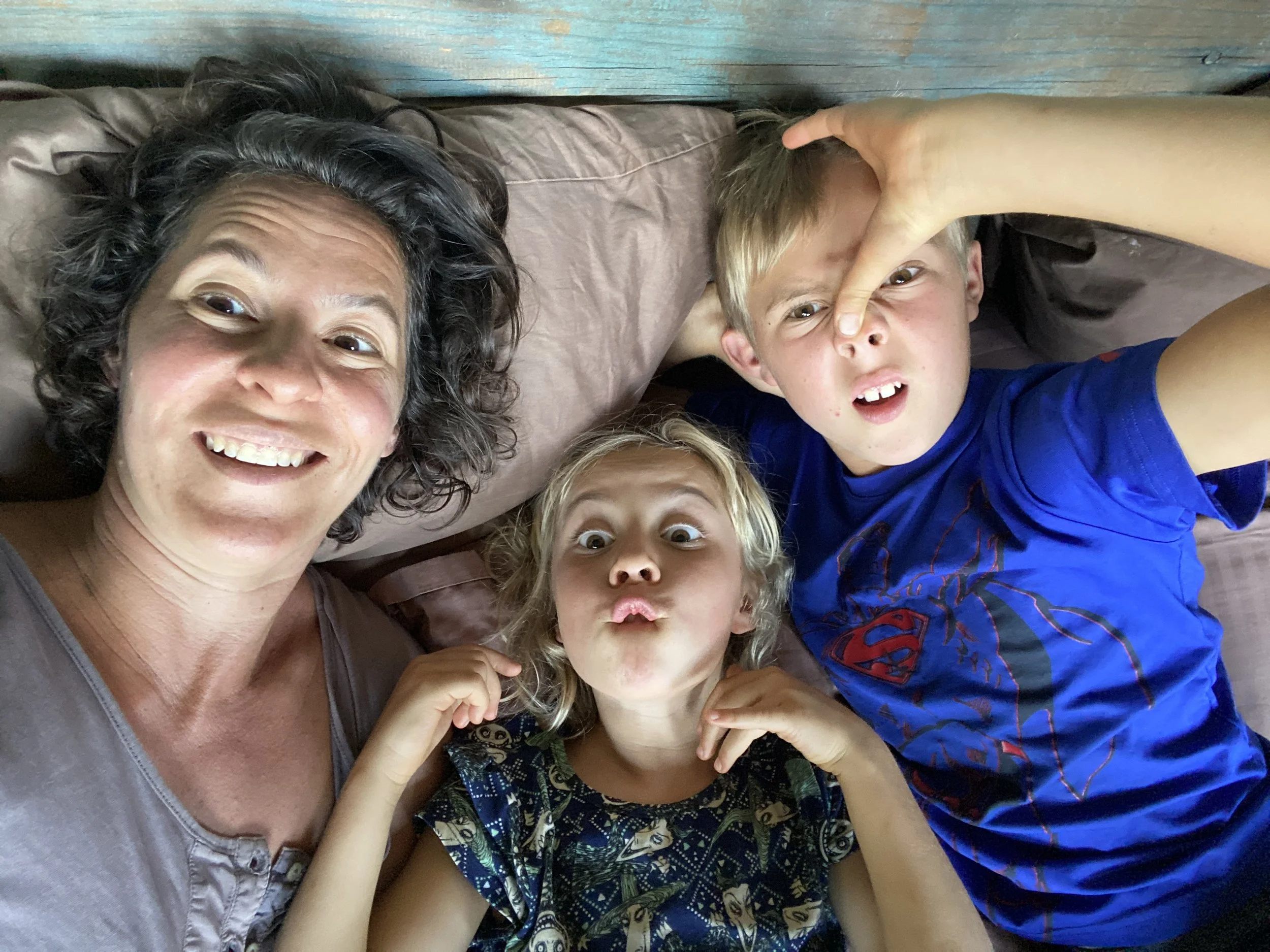How to Understand Relationship Patterns
Everything in the universe moves in patterns. Planets revolve around stars in patterns. The tilt of the earth creates seasons that change according to patterns. The rivers and streams flow in patterns. The days, weeks, months, and years all pass in patterned cycles. The same is true for our life patterns and habits.
People do everything in accordance with patterns. They work, eat, sleep, move, and think according to certain patterns. The tendency to do things according to patterns is natural and can be seen in all people. Patterns can be changed, and, to a certain extent they do change in small and subtle ways over the life cycle in each person, but every life is largely influenced and determined by patterns.
We often don’t realize that we are inviting dynamics into our relationships that don’t serve us. We are accustomed to a way of interacting and unconsciously create the same kind of situations (patterns) over and over again.
These patterns are beyond romantic relationship choices. Like Freud’s Repetition Compulsion: “the pattern whereby people endlessly repeat behaviors which were difficult or distressing in earlier life.” Or an unconscious need to reenact early traumas. People repeat these traumas in new situations that might symbolize the initial trauma. It essentially means we're trying to fix the past by pursuing similar situations or people who once hurt us. It plays out across our lives: in romantic relationships, friendships, work, parent-child relationships, and in the relationship with the self.
If we each look at ourselves, our culture, our family, and our specific role in our family of origin, we begin to notice some patterns. These are the family values that were passed on to us. Each of us either falls into line or acts in total opposition with the values of our family. We will be drawn to people who recreate familiar or entirely opposing feelings for us when we haven't spent enough time resolving our origin wounds. We have an (often unconscious) system that guides our behaviors, the relationships we seek, the roles we play and, how we seek validation in the world.
Some of the imprints we receive can be because of a specific dysfunction in our family that puts extra pressure on everyone else (alcoholic dad, depressed mom, bipolar sister, traumatized grandma, etc..); the high-need member of the family sets a dynamic in motion that everyone else builds a workaround for. This is all happening in the unsaid world of gestures, messages, and pressure without any explicit discussion.
In a society that is very repressive and violent, the message can be “don’t speak up, “be patient, and put your needs aside.” These messages can literally be a way of saving a life. A dear friend of mine grew up in Iran, putting her needs aside and feeling there was no space to take a stand was instilled in her as a survival mechanism, (so she wouldn’t get killed by the religious police). As she began to notice dynamics across her life, she began to piece the effects of the repressive society on her feeling that she could finally say no and could put her needs on the table, even if there would be fall out. Her lack of boundaries created relationships in which her needs were not considered. Even though she never imagined it, the cycle was set into motion by her lack of knowing when and how she could assert herself. When did she have a right to take a stand? When should she be patient? As she unfolded her history, she could check in and make conscious choices about what was actually okay for her. She had to realize that she was safe and allowed to have needs.
Often we don’t realize we have the right to needs. Or we choose to make ourselves so independent to not risk needing others. The dynamic plays out in the way we relate to others; it can be a way of “not rocking the boat” because we had to be a good child and not create any issues in our family of origin… that dynamic in adulthood can lead to flimsy boundaries, people pleasing and lots of resentment.
If we grow up learning that our value and worth are tied to being perfect, performing, pleasing, offering humor, or keeping the peace, we might notice that we continue to choose relationships that require us to maintain those strategies in order to get love, connection, validation, or presence. Or we may go in direct opposition to what we have lived: If we grew up being the emotional caretaker to a parent, we may notice that we choose people who are invulnerable and closed off so that we never have to be in that role again.
There are times we feel we are treated unfairly, whether it is with a partner, a friend, a sibling, or a colleague. The other person has taken too much or not given enough. They have crossed boundaries. We feel annoyed but keep on allowing the friendship to develop. We don’t speak out. We are unsure of ourselves. In many of these relationship patterns there is a continuum at play: patience with others and standing up for oneself; not rocking the boat versus self-interest; telling the truth at all costs and sensitivity to others’ needs; etc…
There are several different factors that contribute to our tendency to repeat destructive behavioral patterns:
We repeat what we learned as children. The beliefs, coping mechanisms, and behavior patterns that we learned in childhood become deeply entrenched because we learned them when we were vulnerable, and our brains weren’t fully developed. Since they are so ingrained in our psyche, they can be incredibly hard to change.
We unconsciously repeat traumatic experiences. While it may seem counterintuitive, if we felt unloved, rejected, or hurt in childhood, we may recreate the traumatic experiences in adulthood. It is an unconscious effort to change the outcome to heal ourselves by gaining the acceptance/love of someone, or to feel in control. But, instead, we tend to choose partners and friends who treat us as our parents did and we continue to play our part as we always have and recreate the same outcome not a different one.
We sabotage ourselves because we think we deserve it. Traumatized children often grow up thinking that they deserve punishment. They may be told that they are the reason why their family is so dysfunctional or they may be blamed in a less direct manner and internalize the shame. And even if we aren’t directly blamed, we internalize our family’s shame and blame ourselves. Our self-esteem is eroded, so we believe that we deserve emotional pain, abuse, failed relationships, and shame in adulthood. (A child would much prefer to see themselves as to blame than the parent who is supposed to protect them, if the parent is the cause of the problems, then the child is powerless. But if the child is to blame, then they have agency and the capacity to change the future).
We repeat whats familiar, regardless of merit. We tend to repeat familiar subconscious and conscious behaviors because we know what to expect from them. This is true for many other things in life, as well. Even when we know something is wrong or unhealthy, its hard to change; its always easier to keep doing what we’ve always done than to learn and apply new skills. This is especially true in stressful situations. When our nervous system is overwhelmed, our emotions feel out of control, and our body is flooded with adrenaline, its extremely challenging to choose the unknown over the familiar.
Here are a few prompts to help you start observing your patterns:
Do I have a relationship pattern in my life? With people, at work, at home, in habits or in decisions?
Does my relationship pattern change in work, social or romantic settings?
Has my pattern served me?
What triggers cause my pattern to go negative or unhealthy?
How does my relationship pattern change how I engage in conflict?
Do I want to change the pattern?
Here are some ways to begin changing your old patterns:
Become more aware of the relationship patterns in your family of origin. These were the models for all your future relationships. You might find it helpful to read about relationship dynamics, write or journal about your childhood experiences, or talk with a therapist who can help you gain greater awareness of your family’s unspoken rules and roles.
Reflect on your own behavior. Its also important to be aware of your thoughts, feelings, and behaviors and understand the part you play in your dysfunctional relationships. Ultimately, you are responsible for your own actions, and learning healthier ways to solve problems, get your needs met, and cope with stress.
Heal the underlying trauma wounds. Dysfunctional relationships stem from abandonment, rejection, shame, and other painful and traumatic experiences. You need to learn to feel worthy and lovable in order to find healthy, stable, loving relationships. Until your emotional wounds and unmet needs are acknowledged, you will continue to seek healing from partners who are unable to make you feel loved or lovable. There are quite a few different therapeutic approaches that can be helpful.
Work on your repetitive problems by examining what you are doing when those problems don’t occur. Many times, such exceptions provide clues as to your strengths and competencies.
Learn and practice new skills. To change your relationship patterns, you must change your behavior. This might include learning more effective communication skills.
Significant change does not occur overnight. Once we find a way to interrupt old, counterproductive patterns and replace them with new and constructive ones, the challenge becomes one of internalizing your new patterns and cementing them as positive habits. It is important to rehearse change efforts over time until the desired changes become more automatic and consistent.
Therapy is a great help in the process of tracking patterns. A good therapist is someone who knows how to recognize patterns and is adept at revealing them to you in a digestible way. This provides a tool for you to create change in your life.
Are you looking for help with your relationship? Do you feel that a relationship coach could help you working on your couples skills? Is communication an issue? Have you ever considered couples therapy or counseling? As a psychotherapist and relationship coach, I am uniquely positioned to help you through these moments of disconnect and conflict.
__
Learn more about my approach to life consulting and relationship coaching here or get in touch for your free 30-minute consultation here! Don’t forget to follow along @LilyManne on social for more regular updates!


